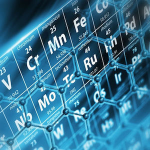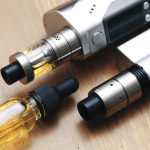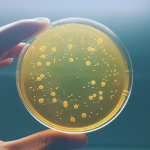Four new chemical elements have official names and symbols, the International Union of Pure and Applied Chemistry recently announced. After a five-month review, IUPAC chemists have approved the names for superheavy elements 113, 115, 117 and 118 proposed by the elements' discoverers.
Chemicals & Chemistry
New research published in the American Journal of Infection Control suggests that professionals who administer breath alcohol tests should stay away from hand sanitizers that contain ethanol, as they can cause breathalyzers to produce a false positive result. That's because the active ingredient is often some kind of alcohol.
There isn't a fringe movement that Robert F. Kennedy, Jr doesn't like. He appears to subscribe to conspiracy theories involving the assassination of his uncle, JFK, and he's one of America's most prominent disbelievers in vaccine usage. Now, Mr Kennedy is joining the protesters at the Dakota Access Pipeline.
There are some unanswered questions about the long-term health safety of e-cigarettes. Studies have suggested that "vaping" is safer than smoking because it doesn't expose a person to the inhaled toxins found in cigarette smoke that can cause cancer. A recent study published in Mutation Research has furthered this thinking, showing that e-cigarettes do not cause mutation in DNA.
In the 1970s, an assay was developed by Dr. Bruce Ames that revolutionized the ability to test if a compound causes cancer or not. Since then, the Ames test has been used on everything from food dyes to pesticides. The test's power is not only that it is incredibly efficacious, but also that it's inexpensive and relatively easy to do.
Avid golfers and plant pathologists normally don't have a whole lot in common, their interests likely intersecting with the frequency of a hole-in-one. But when several golf courses in the south faced a mysterious grass disease that was fouling their fairways, researchers were able to come up with a solution. It amounted to another crowd-pleasing win for science.
Many natural remedies do not work. Despite those who swear by herbal medicines and other traditions that stretch back, in some cases, thousands of years, modern science often cannot verify the claimed benefits. But that isn't always the case. Occasionally, scientists confirm that a traditional remedy indeed does work, and one such example has been reported recently in the Journal of Agricultural and Food Chemistry.
The Environmental Protection Agency is punting a final decision on the safety of the controversial weedkiller glyphosate to the next administration. The lengthy process has been fraught with delays, accusations of political maneuvering and even Congressional investigations.
There's a long history of ridiculous fearmongering -- centering on BPA, MSG, Alar, DDT to name a few -- by environmental activists masquerading as health experts. Today, the whipping boy that takes the brunt of the unfounded chemophobic assault on science is the herbicide glyphosate.
There was a time when the International Agency for Research on Cancer did fine work. It knew how to separate health threats from health scares and if its officials tackled something, it was important. Yet today IARC claims hot water and bacon causes cancer. What went wrong? Frankly, officials ran out of cancer-causing agents so they started inventing them. And now we have this glyphosate fiasco.
A team of international researchers, in collaboration with the World Health Organization, recently assessed the share of global disease burden that was directly attributable to environmental risks. Their findings were published in the Journal of Public Health.
Besides making wigs, or perhaps some rather bizarre clothing and artwork, there aren't a lot of practical uses for discarded human hair. But that could change thanks to a team of Japanese and South Korean chemists.











